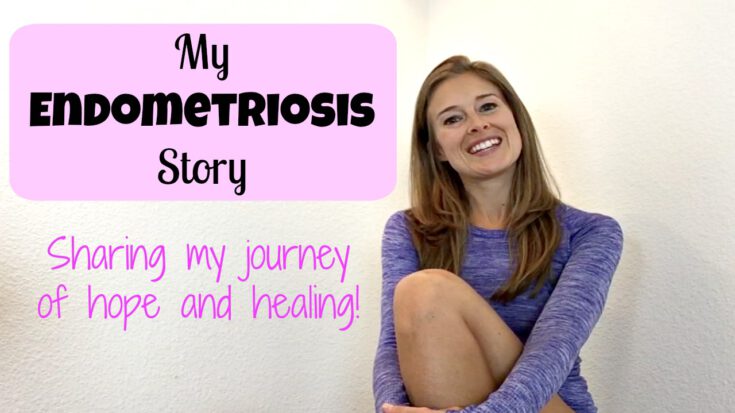To get in-depth information about my story and learn more about my IVF book coming out this year, join my mailing list here.
———————————————————————————————————————————————————————————————–
Choosing your IVF doctor is one of the most important factors in your IVF journey. You will be investing a lot of time, emotion and money with your facility in the hopes of having a baby, and you want to make sure you and your partner feel comfortable and secure in your choice.
That being said, I truly think there are many good IVF doctors to chose from. I think you need to make an informed and thoughtful decision when it comes to choosing your doctor, but I don’t think you need to agonize over the decision for six months.
After talking to friends about their infertility journeys and after my own experience with two IVF cycles, I believe there are a few important factors that will contribute to your decision about which IVF doctor to chose. Taking these into account and asking the right questions can help improve your overall experience and possibly your chances of becoming pregnant.

How to Chose Your IVF Doctor and Clinic
Get a Recommendation
When I was first told by my doctor that we should consider IVF if we wanted to get pregnant with our second baby, I immediately asked for his recommendations. I then went home and called my girlfriend who had just gotten pregnant through IVF in my same city and then texted my reproductive acupuncturist for their recommendations as well. After getting that baseline information, I went to their websites and started doing my research.
I highly recommend getting a starting point from someone or somewhere other than Google or Yelp. Ask friends. Ask your doctor. Ask anyone who has knowledge in the field who you trust. Find out their experience and use that as a springboard for the next questions on the list.
Level of Experience
First off, make sure you are seeing a board certified reproductive endocrinologist. “Reproductive endocrinology and infertility (REI) is a surgical subspecialty of obstetrics and gynecology that trains physicians in reproductive medicine addressing hormonal functioning as it pertains to reproduction as well as the issue of infertility.” (source)
All IVF doctors should be RE’s, but you will want to double check that your is. Your regular OBGYN typically is not. They can start the infertility process for you by running a few basic tests, but after a few months of no success, you should move on to an RE for more intense testing.
You will also want to check how long the IVF doctor has been doing fertility treatments. My arbitrary opinion would be someone with at least 5-10 years of experience. After that, more experience doesn’t always mean better treatment. The main question to ask is if the doctor is keeping up on current research and technological advances. Basically, is their treatment protocol keeping up with the times, and do they have enough experience to have seen many different scenarios?
Location
You might tell yourself that you are willing to drive an hour to see the “best” doctor in the city, but please know ahead of time that you will be going to the doctor A LOT. You’ll have your initial consultation, along with a hysteroscopy (similar to an ultrasound) and some bloodwork. You will then need to go in to sign and review all paperwork and have an information session on your injections. That is all before you start your stimming. The week of the stimming you will be seen 4-6 times, and you will then be seen 4-6 times again after a successful implantation. You’ll need someone to drive and pick you up from your egg retrieval and embryo transfer as well. You’ll also be getting blood work drawn numerous times in addition to the appointments. You want to keep this in mind when you chose a doctor. I was so fortunate to have my doctor seven minutes from my house and it was a life saver. I know this isn’t possible for everyone, but you may want to consider traffic, family and work commitments and appointment availability before committing to an IVF doctor.
Communication
First impressions are fairly important to me, and if I have a hard time reaching a doctor’s office or getting a call back, it puts up a red flag. From the onset you want to know you are being heard and listened to. You’ll want to know what the communication “chain of command” is during your cycle. Will there be someone available 24/7 if you have questions about symptoms, injections or protocols? My doctor’s office had a patient coordinator who was my “go to” for all my questions during my cycle. I had her direct email and she would get back to me within 24 hours. If I needed something immediately, someone always answered the phone. If it was after hours, there was a cell phone number available for me to call in emergencies. Ask and find out how easy it is to reach the coordinators, doctor and nurses and how communication works with your IVF doctor.
Technology used
Not all doctors are created equal, and that goes for the doctor’s offices as well. You may want to ask if your doctor’s office has it’s own embryologists on staff or if they outsource this. I would ask about the failsafe procedures in place to ensure the eggs and sperm from partners are tagged correctly and combined correctly. What happens if the power goes out? What happens if the doctor gets sick on the day you have an embryo transfer (yes, I saw that happen). Does your clinic offer ICSI (intracytoplasmic sperm injection)? It is a procedure in which a single sperm is actively injected into the egg. It isn’t necessarily for all IVF cases, but it will give you an idea whether your IVF doctor has the ability to use the most up to date technology.
Price
Price is an unavoidable issue with IVF and something you will want to ask about. Most offices avoid giving you exact numbers because it can vary so much, but try to get a ballpark. They will not give you medication costs by the way, because their costs don’t cover that. Their costs also won’t cover genetic testing or embryo freezing. Because of this it can be hard to compare, but still worth asking about. Another thing to consider is if the doctor offers “risk-sharing”. During risk-sharing, a client can pay a large amount (say $20,000) up front for three cycles. That client is guaranteed to become pregnant or the money is returned. So the client risks paying a higher amount if they get pregnant in one cycle and the clinic risks losing money if the client doesn’t get pregnant at all. There are pros and cons to this and it’s a personal choice, but something worth considering. To give you a comparison point, I researched three clinics before finally choosing one. They each had similar prices. When all was said and done, we paid approximately $20,000 for each of our IVF cycles.
Flexibility on procedures used
If you have read my story, you know I become pregnant after our fresh embryo transfer. We planned on doing a frozen transfer, but because our IVF cycle failed the first time, our doctor worked with us to create a plan that had the highest possibility of success. I have since talked to at least two friends who say their doctors refuse to do fresh transfers and only will consider frozen transfers, even if previous frozen embryo transfers haven’t worked for the client. This blows me away. Not so much the issue of frozen versus fresh embryo transfers, but the fact that the doctor won’t consider other avenues to help their clients. I fell in love with my doctor when she was willing to work with us during our second cycle to find a way for us to get pregnant. It wasn’t conventional and it took some problem solving, but we worked as a team and created the best plan for our situation. You need to know your IVF doctor is on your side and is willing to be creative and break from tradition if it means helping you get pregnant.

Those are the issues that I think are important when considering which IVF doctor to chose. I also think there are a few things that aren’t as important to consider.
What To Ignore When Choosing an IVF Doctor
Success rates
Everyone wants to know success rates. Doctors have them listed online and clients usually ask this question first. While I think it could give you some useful information, you have to take it with a grain of salt. What exactly are they measuring? Are they considering success getting a woman pregnant or having a woman deliver a healthy baby? Also, some doctors will possibly change their treatment in order to help improve their success rates. For example, I think some doctors (as I mentioned above) won’t do fresh transfers because there is an overall lower success rate. I think they may avoid taking the chance because they don’t want to decrease their success percentage. As I said, it may be worth taking a glance at, but don’t get too caught up in it. Besides, when I was comparing doctors, each had the exact same success rate.
Appointment wait times
My husband can’t stand waiting in doctor’s offices. He thinks it’s rude and unprofessional behavior for the doctor and clinic. While I don’t like it either, I accept it as a part of life. My IVF doctor and clinic always answered my calls during the day, returned my messages within a few hours and answered my important emails in a timely manner. They got me in to my appointments every time I needed one and I didn’t have an issue with scheduling. While I did have to wait an average of 30 minutes every time I got to my appointment, it was something I was ok with. I knew they were answering previous clients questions and that they would take the time to answer mine as well. You have to decide if this is important to you, but to me, there will be wait times in every clinic. I’d much rather know I’m being communicated with quickly, personally and in a timely manner than never wait in the waiting room.
Yelp reviews
It’s so tempting to read every review online for your IVF doctor, but I would suggest putting much more emphasis on personal recommendations. There will always be people who are not happy with a doctor or clinic. This is unavoidable. It is usually the clients who had a bad experience who take the time to write online reviews, so it tends to be skewed that way. Again, it might be worth skimming, but don’t make your decision solely based on this.
Overall, the most important aspect of choosing a doctor is your gut feeling. How do you feel when you call to make your initial appointment? Is the receptionist helpful or do they make you feel rushed? Is the waiting room a calm and inviting place (because you’ll be spending a lot of time there :), or does it feel cold and clinical? Does the doctor look you in the eye and answer your questions? Do you feel listened to? Do you feel cared about? Can you talk openly and honestly? These are the most important factors to consider.
IVF can be difficult, but choosing an IVF doctor who you trust can make the process that much easier.
To get more in-depth information and learn more about my detailed book on IVF when it comes out, join my mailing list here.



